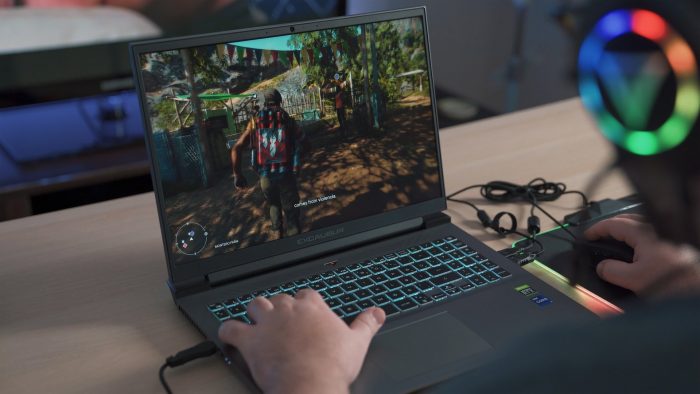Experiments with video games can be quite unexpected – in the U.S., for example, video games have been included in a prisoner rehabilitation program. In Oregon prisons, the number of offenses decreased after the introduction of the ability to play on simple consoles as an incentive. By the way, the incentive program for good behavior included not only games, but also increased visitation and even a chance to eat ice cream – so it probably worked all together.
Researchers have not given up hope of finding positive effects of video games on inmates’ moods, stress levels and even susceptibility to pain. Society likes the idea that bad uncles become good uncles if you give them a PlayStation or a cool gaming laptop.
Related to this is another field of research: can video games affect any people’s ability to compassionately understand and respect the feelings of others? A group of scientists from different countries studied pro-social values: the extent to which computer games can improve relationships with people, because they are not as a VIN check.
They have developed a game as close to entertainment as possible: in it the alien is forced to act in unfamiliar environments, displaying different emotions. Psychologists discovered that after the game sessions, the subjects had changes in the parts of the brain responsible for emotional regulation and ultimately for the manifestation of empathy.
The UK’s National Literacy Trust came to similar conclusions when it conducted its own study in 2020, apparently concerned that schoolchildren might not have forgotten how to write and read during the pandemic. Turns out the foundation had nothing to worry about – in addition to the positive effects of games on reading and writing skills, it found that
- video games helped teens strengthen social connections both online and in real life;
- Games helped them put themselves in someone else’s shoes (65% of subjects);
- More than 76% said games were what they talked about with friends, and only 29% discussed books.
Let’s gamify the entire high school literature curriculum and strengthen social bonds with classics!
Games allow us to explore ourselves
How do we achieve spectacular success at anything and how do people achieve mastery in general? A relevant question for psychologists, too. After analyzing the recordings of gamer matches, statistics and even the movements of the fingers, they identified patterns common to supergamers. First, highly ranked players had a certain schedule of frequency of games and breaks: in their case, playing more often did not mean playing better. Second, the professionals used hotkeys at a high speed of 200 actions per minute or more. And they developed this speed in the first minutes of the game, without lowering it thereafter. And even professional players used their unique sequences of keys as their skill grew: scientists determined the gamer by these keys only.

Surely there are more differences between a professional and a mediocre player. But that’s not even the point-the perspective of such research is important. The game situation provides a natural, “ecologically” valid environment, not an artificial laboratory environment. By activating the play motivation of the subject, psychologists make it easier for him or her to enter the experimental environment. Simply put, it is difficult to think of better conditions for studying personality than play.
Perhaps you have noticed that a certain type of personality or character corresponds to a certain style of play. Does your playing style reflect who you really are? This question is already being asked by the GAMR (Game and Mind Research). They collect data from players of League of Legends, World of Warcraft, Battlefield 4 and Battlefield: Hardline and study their psychological profile and cognitive abilities. By the way, someone in Russia also tried to get a patent for such developments.
What does this give the player? GAMR gives every test person information about their personality type, brain activity and playing style. You can already determine your optimal learning style by the way you play. For example, fans of strategies tend to have a global approach to the learning process, action players prefer active learning instead of abstract reflection, and puzzles like those who absorb new information gradually and consistently.
From the future we expect games that develop the skills we lack. Or those that are perfectly adapted to our character and inclinations. The main thing is that data about these aptitudes should not leak out where it doesn’t belong. But that is a subject for another conversation.
Games Stimulate Creativity
In 2011, the U.S. government, represented by the National Endowment for the Arts, recognized video games as an art form. Now you can get a government grant in the U.S. to develop them. But that’s not what matters. The important thing is that games are officially recognized as one of the engines of culture.
The logic is clear: the games industry has long employed not only developers, but also artists, writers, and musicians. Games are not just an entertainment product, but also a tool for creative expression. Back in 2010 independent developer Michael Samin released the notgames manifesto. These are games without a coherent script that have no entertainment or competitive purpose. Michael Samin’s studio produces non-games where the player is an observer experiencing some kind of special state. It turns out that games are at least very promising for creative expression.
